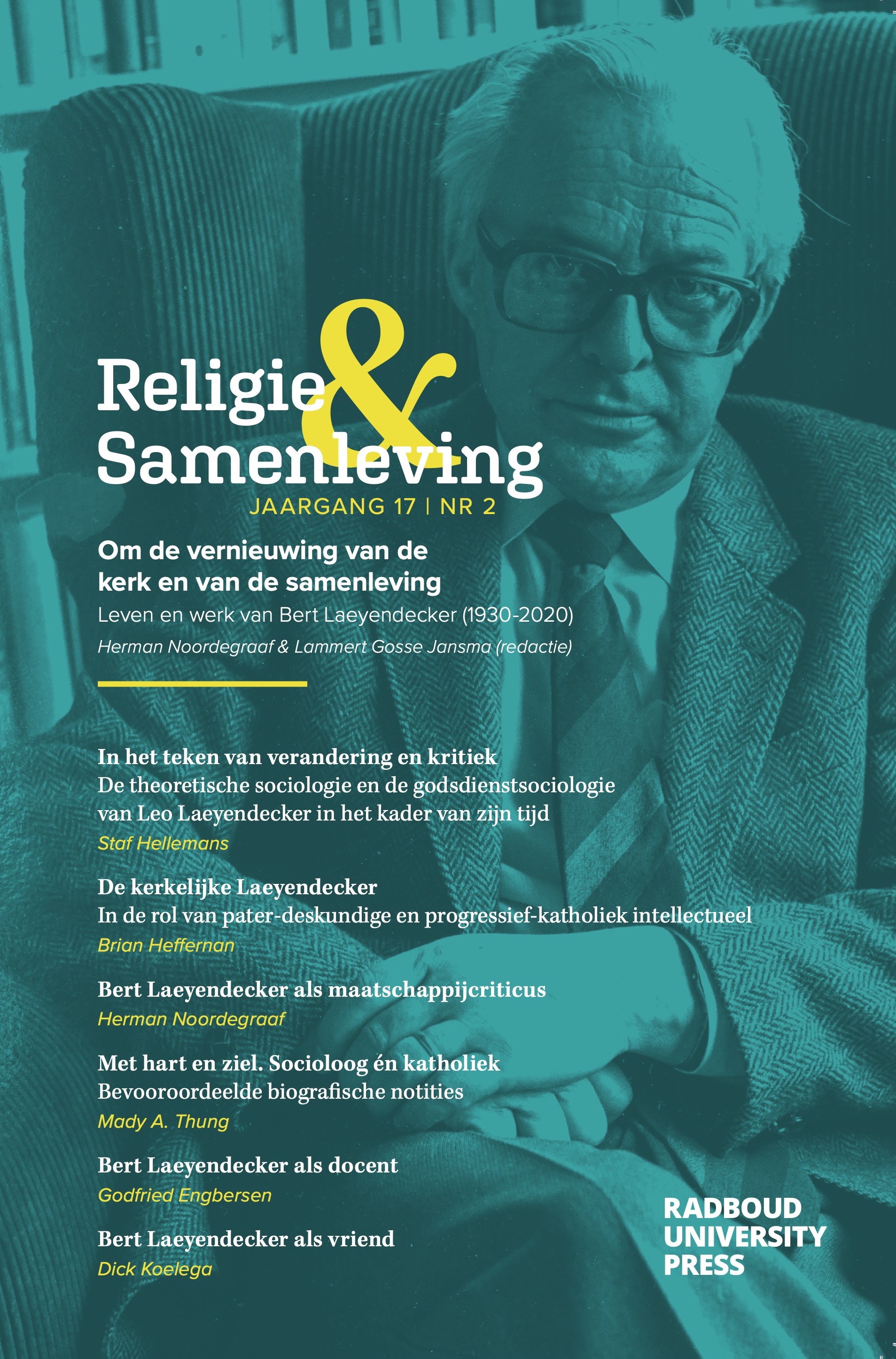Bert Laeyendecker als maatschappijcriticus
DOI:
https://doi.org/10.54195/RS.12439Samenvatting
In the first stage of his scholarly career Bert Laeyendecker was involved in sociology of religion and church. However from the seventies he also directed himself towards a critical study of society. In this article his main writings in this field are described and analysed. In these writings he focused himself on a macro-sociological analysis of modernisation and modernity. He used two methodological approaches, a historical sociological approach that was strongly influenced by Max Weber and an analysis that was rooted in the social system approach of Niklas Luhmann. According to Luhmann, modernisation and modernity are characterized by differentiation of segments of society such as science, economy and technology. These subsystems got a dynamic with their own orientation and goals. This complex of differentiated subsystems has made an improvement of life in Western society possible, but has a one-sidedness that causes problems like destruction of environment and social inequality. For that reason a fundamental adjustment is necessary. However, that dynamic can hardly be influenced because systems for a great part have a life of their own. Laeyendecker was pessimistic about the possibilities of fundamental changes, but because of the calling for human responsibility humanity has a task to try to accomplish as much as possible. In the course of the article Laeyendeckers view on the sense of utopian thinking, on postmodernity and on the position of university and churches are dealt with.




